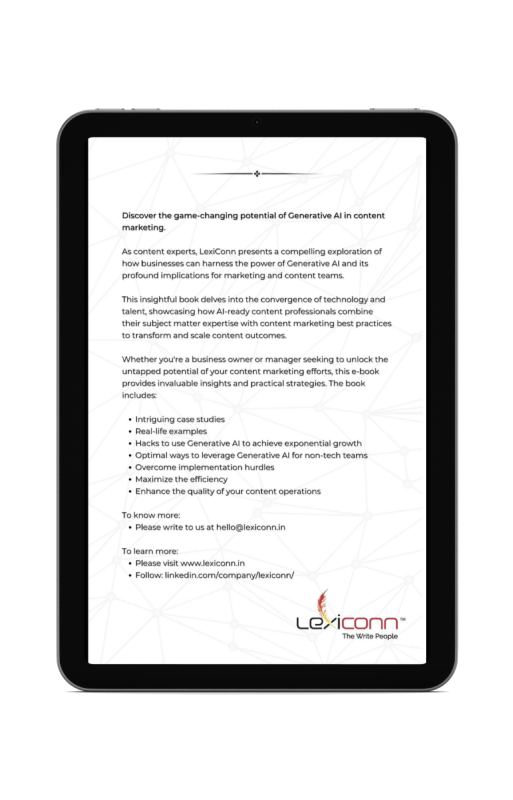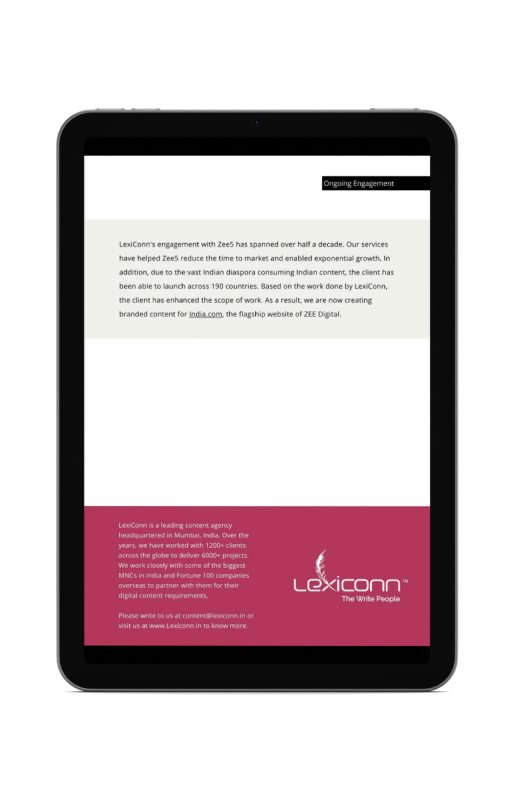

In today’s digital-first world, social media has become the cornerstone of brand-building and customer engagement. For CXOs, the challenge is no longer just about being present on social platforms but about creating a genuine connection with their audience.
Enter authentic branding—a concept that has moved from being a buzzword to a business imperative. In an era where consumers are increasingly skeptical of traditional advertising, authenticity has emerged as the key to building brand trust, fostering social media influence, and driving brand engagement
But what does it mean to be authentic on social media? And why does it matter so much for CXOs?
This blog explores the role of authenticity in social media branding, exploring its impact on customer experience (CX) and offering actionable insights on how to be authentic on social media.

Consumers today are bombarded with ads, sponsored posts, and influencer promotions. According to a 2023 report by Edelman, only 34% of consumers trust the brands they buy from. This trust deficit is even more pronounced on social media, where users are quick to spot inauthentic behavior.
Authenticity bridges this gap. When brands are genuine, transparent, and relatable, they build brand trust. A study by Stackla found that 90% of consumers say authenticity is important when deciding which brands they like and support. For CXOs, this means that authenticity isn’t just a nice-to-have—it’s a must-have for long-term success.
Social media algorithms prioritize content that sparks meaningful interactions. Authentic content—whether it’s a behind-the-scenes look at your company or a heartfelt response to a customer query—resonates deeply with audiences.
According to Sprout Social, 70% of consumers feel more connected to brands when their CEO is active on social media. This connection translates into higher engagement rates, which in turn boosts visibility and reach.
Gone are the days when brands could hide behind polished corporate facades. Today’s consumers want to see the human side of businesses. They want to know the people behind the logo, the values that drive the company, and the impact the brand is making in the world. Authentic branding allows CXOs to humanize their organizations, making them more relatable and approachable.

One of the most powerful ways to be authentic on social media is through storytelling. Share stories that reflect your brand’s mission, values, and journey. For example, Patagonia’s commitment to environmental sustainability isn’t just a marketing tactic—it’s woven into every aspect of their brand narrative.
By sharing authentic stories, CXOs can create an emotional connection with their audience, fostering loyalty and advocacy.
Transparency is a cornerstone of authenticity. Whether it’s addressing a product recall, sharing company milestones, or acknowledging mistakes, being open and honest with your audience builds credibility. A 2023 survey by Label Insight found that 94% of consumers are likely to be loyal to a brand that offers complete transparency.
UGC is a powerful tool for authentic branding. When customers share their experiences with your brand, it serves as social proof, reinforcing your credibility. According to Tint, 85% of consumers find UGC more influential than brand-created content. Encourage your audience to share their stories and feature them on your social media channels.
Authenticity starts with a clear understanding of your brand’s core values. What do you stand for? What is your mission? Once you’ve defined these, ensure they are consistently reflected in your social media content. For example, if sustainability is a core value, share updates about your eco-friendly initiatives and partnerships.
Authenticity doesn’t mean perfection. In fact, overly polished content can come across as insincere. Don’t be afraid to show the messy, imperfect side of your business. Share behind-the-scenes content, celebrate small wins, and acknowledge challenges. This relatability will resonate with your audience.
Social media is a two-way street. Don’t just broadcast your message—engage in real conversations with your audience. Respond to comments, answer questions, and participate in discussions. According to HubSpot, 83% of customers expect brands to respond to their social media queries within 24 hours. Timely and genuine interactions can significantly enhance your brand’s authenticity.
Your employees are your best brand ambassadors. Encourage them to share their experiences and perspectives on social media. This not only humanizes your brand but also amplifies your reach. A 2023 report by Hinge Marketing found that employee-shared content receives 8x more engagement than content shared by brand channels.
Authenticity isn’t a one-time effort—it’s an ongoing process. Use social media analytics to track your performance and gather insights. Are your posts resonating with your audience? Are you building trust and engagement? Use these insights to refine your strategy and stay authentic.

For CXOs, the decision to prioritize authenticity in social media branding isn’t just about staying relevant—it’s about driving tangible business outcomes. In a world where consumers are increasingly discerning and demand more from the brands they support, authenticity has become a critical driver of success.
Here’s why CXOs should care about embedding authenticity into their brand strategy:
Authenticity fosters emotional connections with your audience. When customers feel that a brand is genuine and transparent, they are more likely to develop a sense of loyalty. According to a 2023 report by Salesforce, 88% of consumers say that trust in a brand influences their purchasing decisions.
When CXOs prioritize authenticity, they create a foundation of trust that encourages repeat business and long-term customer relationships.
For example, brands like Dove and Patagonia have built loyal followings by staying true to their core values—whether it’s promoting body positivity or environmental sustainability. These brands don’t just sell products; they stand for something, and their customers reward them with unwavering loyalty.
In today’s hyper-connected world, a single misstep can go viral and damage a brand’s reputation. However, authentic brands are better equipped to handle crises. When a brand has consistently demonstrated transparency and honesty, its audience is more likely to give it the benefit of the doubt during challenging times.
For instance, when KFC faced a chicken shortage in the UK, they responded with a humorous and transparent campaign titled “FCK.” This authentic approach not only diffused the situation but also earned the brand widespread praise for its honesty and creativity.
CXOs who prioritize authenticity build a reservoir of goodwill that can protect their brand during crises.
Authentic content drives higher engagement, which directly impacts your social media ROI. According to a 2023 study by Sprout Social, brands that prioritize authenticity see a 20% increase in engagement rates compared to those that don’t. Higher engagement translates into better visibility, more leads, and, ultimately, increased revenue.
Moreover, authentic branding reduces the need for expensive, high-production advertising campaigns. Consumers are more likely to trust and engage with content that feels real and relatable, such as user-generated content (UGC) or behind-the-scenes videos.
This makes authenticity not just a moral choice but a cost-effective strategy for CXOs.
Authenticity isn’t just important for customers—it’s also critical for employees. In a 2023 survey by Glassdoor, 75% of employees said they are more likely to stay with a company that is transparent and authentic in its communications. For CXOs, this means that authentic branding can help attract and retain top talent, which is essential for long-term success.
When employees feel proud of the brand they work for, they become its most passionate advocates. Encouraging employees to share their experiences on social media can amplify your brand’s reach and credibility, creating a virtuous cycle of authenticity and engagement.
In a crowded marketplace, authenticity can be a key differentiator. Consumers are drawn to brands that stand out by being true to themselves. For CXOs, this means that authenticity isn’t just about maintaining a positive image—it’s about driving innovation and staying ahead of the competition.
For example, Glossier, a beauty brand, has built its entire identity around authenticity. By listening to its customers and involving them in product development, Glossier has created a loyal community that feels personally invested in the brand’s success. This approach has not only set Glossier apart from its competitors but also driven significant growth.
Authenticity contributes to long-term brand equity—the value that a brand adds to a product or service. When consumers perceive a brand as authentic, they are willing to pay a premium for its products. A 2023 study by Nielsen found that 62% of consumers are willing to pay more for products from brands they trust.
For CXOs, this means that investing in authenticity today can yield significant dividends in the future. By building a brand that is trusted, respected, and loved, CXOs can create a legacy that outlasts short-term trends and market fluctuations.
Today’s consumers, especially younger generations like Millennials and Gen Z, prioritize authenticity above all else. According to a 2023 report by Morning Consult, 83% of Gen Z consumers prefer brands that are authentic and transparent. For CXOs, this means that authenticity isn’t just a nice-to-have—it’s a necessity for staying relevant and appealing to the next generation of consumers.
Brands that fail to align with these expectations risk being perceived as out of touch or insincere, which can lead to declining sales and market share. On the other hand, brands that embrace authenticity can tap into the immense purchasing power of these demographics.
In the age of social media, authenticity isn’t just a moral choice—it’s a strategic imperative. For CXOs, embracing authentic branding means building trust, driving engagement, and creating a lasting impact. By being genuine, transparent, and relatable, you can transform your social media presence into a powerful tool for brand-building and customer engagement.
At LexiConn, we understand the power of authentic storytelling. As a content agency, we offer diverse services to help you craft compelling narratives that resonate with your audience. Whether you’re looking to enhance your social media strategy or build a stronger brand identity, we’re here to help.
Book a free consultation session with us now! You can also reach us at www.lexiconn.in. Let’s create something authentic together.



I have read and accept the Privacy Policy
Read More